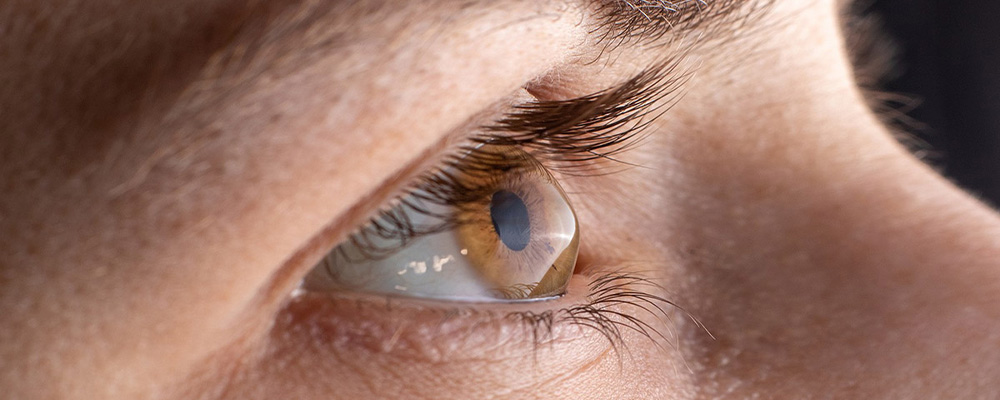
Keratoconus is a disorder that requires special expertise and follow-up. Bringing together experienced specialist physicians and state-of-the-art devices for the diagnosis and treatment of the disease.
To provide the highest level technological tools available in the world for keratoconus diagnosis to our patients. To ensure regular follow-up of patients diagnosed with keratoconus and to provide continuous information about the progress of the disease.
To inform our patients about the latest innovations in treatments applied in the world and to recommend the appropriate treatment. We stock all types of contact lenses in the world, which have an important place in Keratoconus Treatments. To provide service with a very experienced team in contact lens selection, which is difficult and requires patience. Our aim is to offer the latest innovations to our patients in intra-corneal ring application, which is one of the alternative treatment methods. To offer CCL treatment, which is applied only in a few centers in our country, to our people.
What is Keratoconus?
Keratoconus is a progressive disease that occurs due to the thinning of the eye’s transparent layer (cornea) and the increase in its natural curvature.
Symptoms
Keratoconus patients consult a physician complaining of blurred vision in the early stages. These patients are often diagnosed with myopia or myopic astigmatism. Often, patients’ night vision is also impaired. Although pain is not a common symptom in keratoconus patients, many patients describe difficulty and discomfort, especially when reading. As the disease progresses, symptoms such as frequent changes in glasses and/or lens prescriptions, not being able to see well enough despite glasses and/or lenses, seeing more than one object, crooked and/or oblique vision, and complex vision are reminiscent of keratoconus disease.
Why Do We Get Keratoconus?
Hereditary (genetic), environmental and factors related to the structure of the transparent layer (cornea) tissue are blamed for causing keratoconus. Keratoconus is more common in allergic diseases and in cases where the eyes are rubbed frequently.
Treatment
Treatment of keratoconus disease is divided into two: stopping the progression of the disease and improving the patient’s vision. The only treatment option that stops the progression of the disease is CCL treatment. Vision-enhancing treatments such as glasses and rigid gas-permeable contact lenses are effective in the treatment of keratoconus in the early stages.
Intracorneal ring-intacs is an important treatment option for our patients who do not want to wear glasses or contact lenses. In the late period, clear layer transplantation (eye transplantation-keratoplasty-cornea transplantation) can be applied as a last resort in our keratoconus patients who have not received CCL treatment in time.
Can the progression of keratoconus disease be stopped?
Recently, with the transparent layer collagen cross-linking method called CCL (cross linking), the progression of keratoconus disease can be stopped, the need for eye transplantation can be eliminated, and patients’ glasses and/or lens prescriptions can be reduced. Asian Eye Medical Center is one of the few centers that perform CCl treatment.
Transparent layer collagen cross-linking CCL (cross linking) method… In this method, a type of vitamin B (riboflavin) is applied to the eye and then the eye is exposed to ultraviolet-A light (UV-A). In this way, the number of bonds in the roof tissue called collagen in the transparent layer increases, as a result, the transparent layer becomes stronger, its thinner and its forward convexity decreases. All of these result in stopping or even regressing keratoconus disease.
Create an Appointment Online
